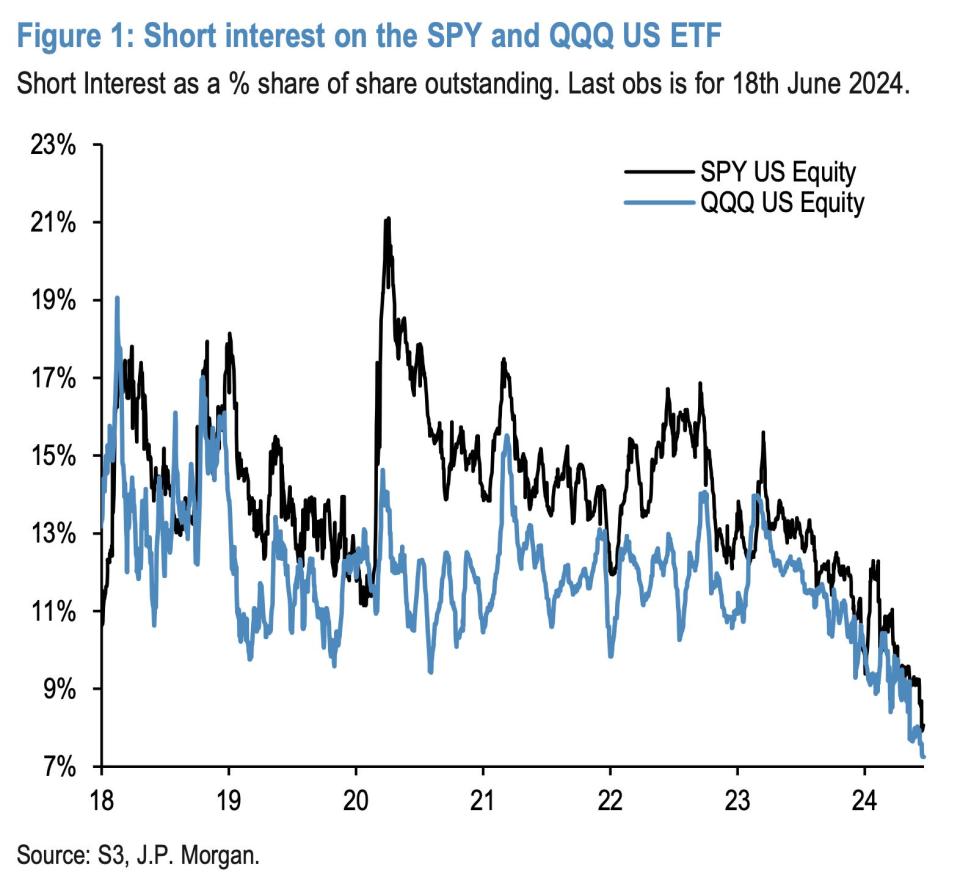
-
Short bets against funds that track major US indexes have declined to record lows, JPMorgan said.
-
There are three main reasons short sellers are withdrawing from the market.
-
Low levels of short-selling could spark volatility in the market if negative news hits.
Nonstop highs in the US stock market have turned short selling into a tough trade, and bets against US indexes have tumbled, JPMorgan said in a note on Thursday.
As the S&P 500 and Nasdaq have hit a streak of record highs this year, short interest in funds that track the indexes has dropped, the bank said.
“The declining short interest on SPY and QQQ ETFs to successive record lows has been providing a steady flow support to US equities over the past year helping to suppress volatility, thus acting as an implicit short vol trade,” analysts led by Nikolaos Panigirtzoglou said.


According to them, three main factors have made this an especially hard market to trade against.
First, short bets are expensive to maintain when a stock or fund is climbing, a risk that’s especially relevant in today’s bull run. Artificial intelligence excitement, the potential for rate cuts, and a resilient economy have all factored into a trading frenzy.
As a result, the S&P is up almost 15% year-to-date and the Nasdaq has posted a 32.3% gain.
Second, regulators have added restraints to short selling, by mandating transparency and adding costs to short sellers that target equities, JPMorgan said.
Finally, industry players are increasingly backing out as they face a rising wall of engaged retail investors, with Gamestop’s famous meme rally in 2021 being the best illustration.
“It is no secret that the long/short equity business model has come under pressure and interest in fundamental stock pickers has waned,” famed short-seller Jim Chanos wrote last November, in a letter explaining why he was exiting the business.
According to JPMorgan, short positions are also disappearing from individual stocks, with a clear decline in the top seven leading equities.
Though this withdrawal has underpinned the equity market’s blowout run higher, it might lead to trouble ahead, the bank added.
“Given how low their short interest is at the moment, this implicit short vol trade looks rather extended by historical standards, posing a vulnerability to US equities in a scenario where negative news start reversing the past year’s decline in short interest,” analysts wrote.
Though unnamed by JPMorgan, analysts have long been warning of a number of market-denting news. That includes the prospect of higher-for-longer interest rates, a resurgence in inflation, earnings fallout, or a geopolitical rupture.
Read the original article on Business Insider















